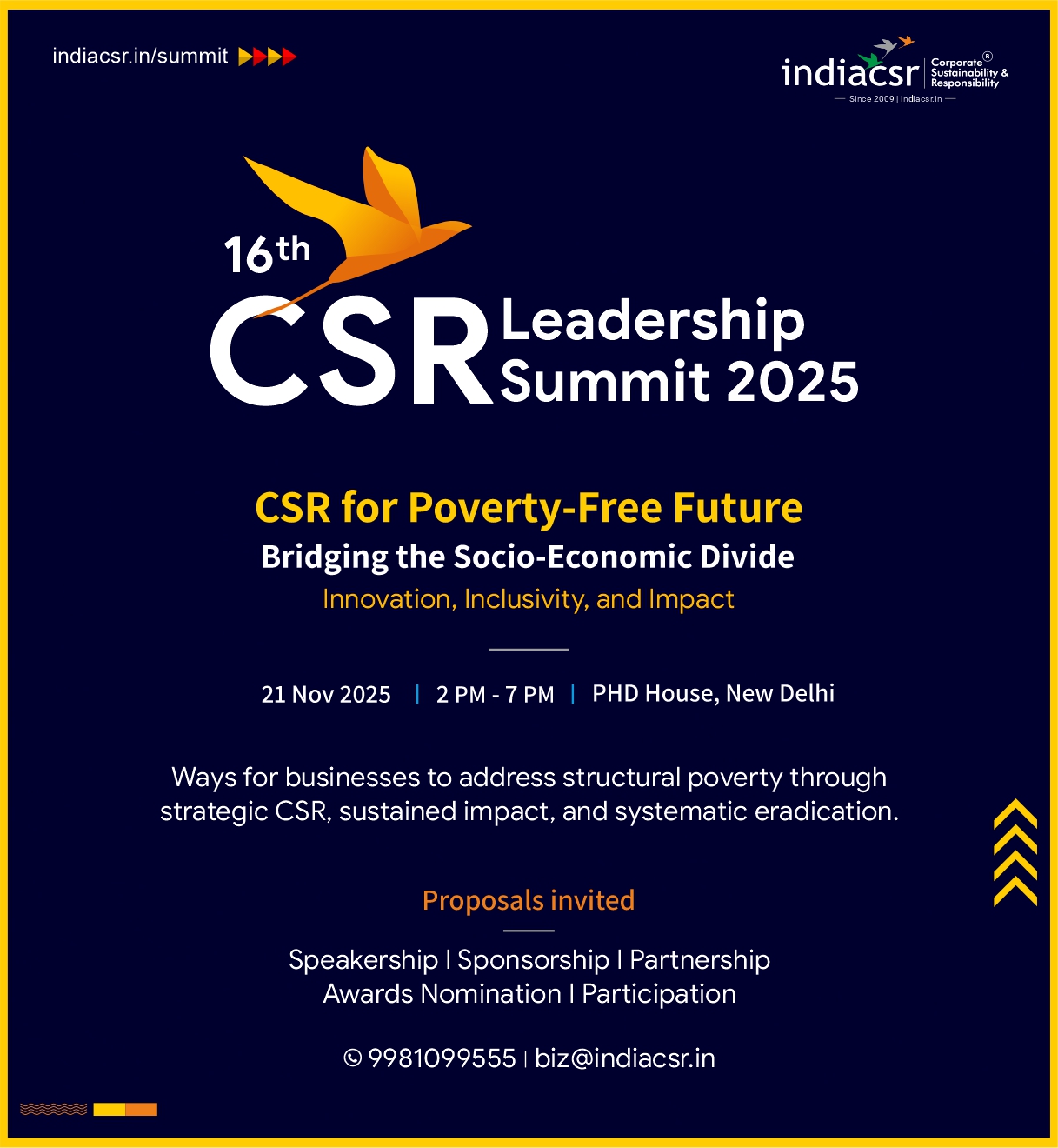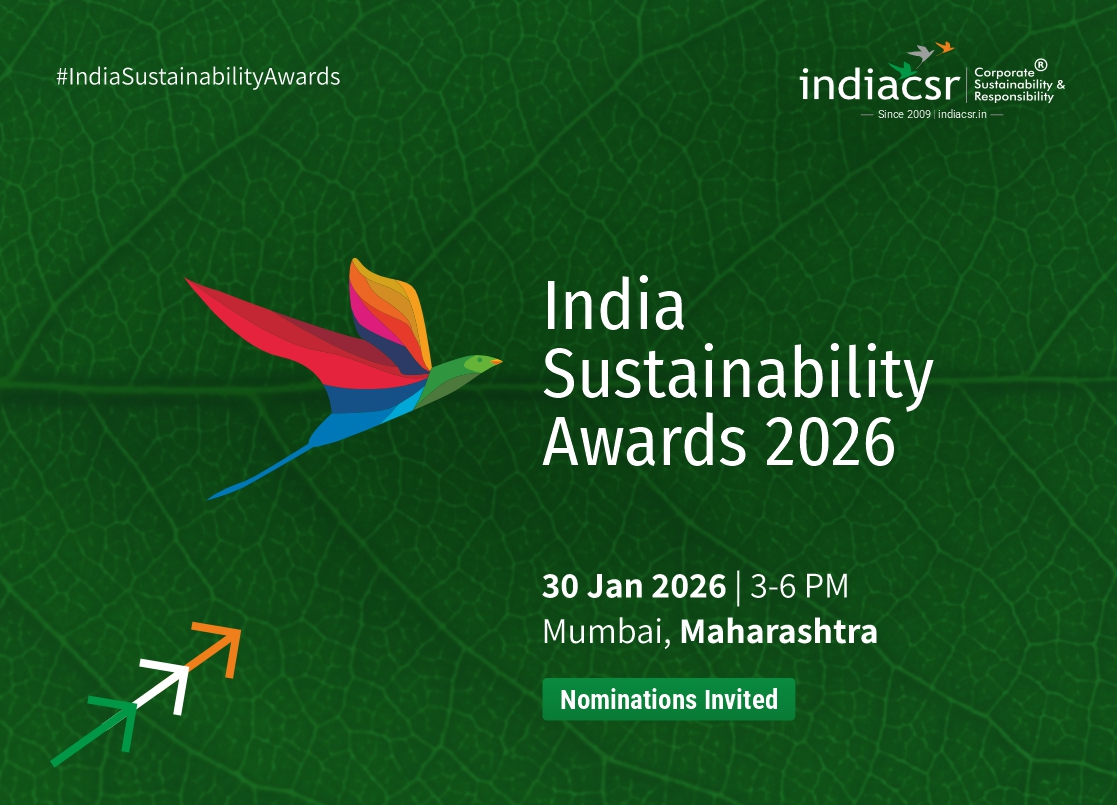A Robust, Repurposed and Well-Regulated Voluntary Carbon Market System can accelerate the Journey to Net-Zero. – Puneet Katyal, CEO of Viviid Emissions Reductions Universal Private Limited
As the world recalibrates its strategy for keeping its promise to keep the ambitious yet achievable goal of restricting global warming to well below 2°C and pursuing efforts to further limit it to 1.5°C, it is abundantly clear that the demand for carbon offsets/credits is only going to head north hereafter. This demand will be a direct indicator of the decarbonisation efforts of the global economy over and above the definitive and concrete steps by the Industry to curtail its Scope 1, 2 and 3 Emissions.
Since Carbon Credits facilitate financing for both avoidance/reduction measures as well as removal/ sequestration, it is likely that the scale-up will be significantly larger than 15 times giving the much needed push to Voluntary Carbon Markets through 2030. It is anticipated that the Voluntary Carbon Markets by the year 2050 would be 100 times larger than what they are currently.
There is enough merit and reason why Article 6 of the Paris Accord sets out co-operative approaches that countries can take to reach their climate targets, including through the use of mechanisms such as Carbon Markets.
Voluntary Carbon markets can efficiently deliver Private Sector funding to innovatively effective Nature Based Solutions (NBS) which help lower global emissions.
Voluntary Carbon Markets have come a long way in its endeavour towards infusing credit integrity, transparency and market efficiency since its inception in late eighties. Though, there still exists a yawning trust and credibility deficit/gap in terms of quality, integrity, additionality, verifiability and traceability of carbon credits that will need to be guaranteed by the Voluntary Carbon Credit Market System that evolves and scales up hereafter.
Further a plethora of fly by the night Carbon Trading Firms mushroomed ever since the Kyoto Protocol came into force in the year 2005 which throws open the larger issue of Governance that should be addressed by the Voluntary Carbon Market Structure that will evolve hereon. To legitimize and lend credibility to the end to end transactions between deserving sellers (project owners) and discerning buyers (of Carbon Credits) it will be equally important to accredit Carbon Trading Firms to ensure that in the process of trade facilitation, climate integrity does not languish behind the parochial profit mounted interests.
As aptly pointed out by Taskforce on Scaling Voluntary Carbon Markets (TSVCM) in one of its reports, Voluntary Carbon Markets have the potential to play a significant role driving investments into New Climate Technologies that are more often than not the most difficult to commercialize. These technologies address two critical elements outlined in Intergovernmental Panel on Climate Change (IPCC’s) mitigation strategies i) drastic reduction in emissions, including from hard-to-abate sectors and ii) durable removal at scale.
The TSVCM further makes a compelling case that the success of scaling Voluntary Carbon Markets rests on building a market with both high integrity and sufficient liquidity. This can be effectively achieved through a set of “Core Carbon Principles” (CCPs) and a clear classification of additional attributes. To enable contracts that assure buyers and the wider ecosystem that genuine emissions reductions are made with high environmental integrity, strengthened by tangible and positive social attributes, the experts believe that the market needs to align on a set of CCPs.
These principles should clearly spell out threshold quality criteria to which a carbon credit and the supporting standards and methodologies should adhere to. This will be a monumental step enabling other recommended actions to work towards high-integrity market scaling and achieving Paris Agreement emissions goals. Currently, liquidity in voluntary carbon markets is fragmented. Projects have a range of attributes (project type or geography, for example) that can influence their value, and buyers have different attribute preferences.
I agree with the observation of TSVCM that CCPs should be mandated to set the threshold quality criteria for a verified ton of carbon (or carbon equivalent) avoided/reduced or removed/ sequestered. These quality thresholds will ensure CCP-aligned credits adhere to the highest level of environmental and market integrity which currently is a clear need-gap. For uninfluenced functioning, the CCPs should be hosted and updated by a credible and independent third-party organization. This entity should define a classification and stratification of additional attributes that can be used to classify all Projects and Credits generated thereof. These additional attributes could include vintage, project type (i.e., avoidance, reduction, nature-based removal, and technology-based removal), co-benefits (e.g. impact on sustainable development goals (SDGs) or technology innovation), location, and inclusion of corresponding adjustments among others.
I cannot emphasise enough upon the importance of Sustainable Development Goals (SDGs) here. Clearly as the Conference of Parties are now paving way for the Sustainable Development Mechanism (SDM) as the successor of Clean Development Mechanism (CDM) under Kyoto Protocol, the Voluntary Carbon Market System and the Global Carbon Mechanisms/ Standards that evolve hereon will have to confer the importance that community level interventions, rights and empowerment based approach for the marginalized and the disadvantaged, push to decent work agenda, facilitation for education for all, truly deserve. It should now be ensured that projects not only take care of the environmental aspects but also the social dimensions that are equally important for keeping the Sustainability Promise and achieving time-bound results.
Decarbonisation that is uniformly etched across the globe can never be achieved through a silo driven approach. Besides the rules and regulations being enacted and implemented at the Global and National Levels, it is extremely pertinent to create an enabling environment for the Voluntary Carbon Markets to unleash their truest potential and let them effectively contribute towards Net Zero without leaving any room for evading and bypassing Climate Integrity.
About Puneet Katyal
Puneet Katyal is the CEO of Viviid Emissions Reductions Universal Private Limited– a Global Entity in the domain of Credible Carbon Management with functional expertise spanning over two decades now.
Views are personal.
Related
India CSR – Viviid Emissions Reductions Universal Pvt. Ltd. gets a New Corporate Website
CSR: Sustainability Agenda gets a Shot in the Arm – India CSR Network
Read More Stories of the Company: Viviid Emissions Reductions Universal Pvt. Ltd. Archives – India CSR Network








